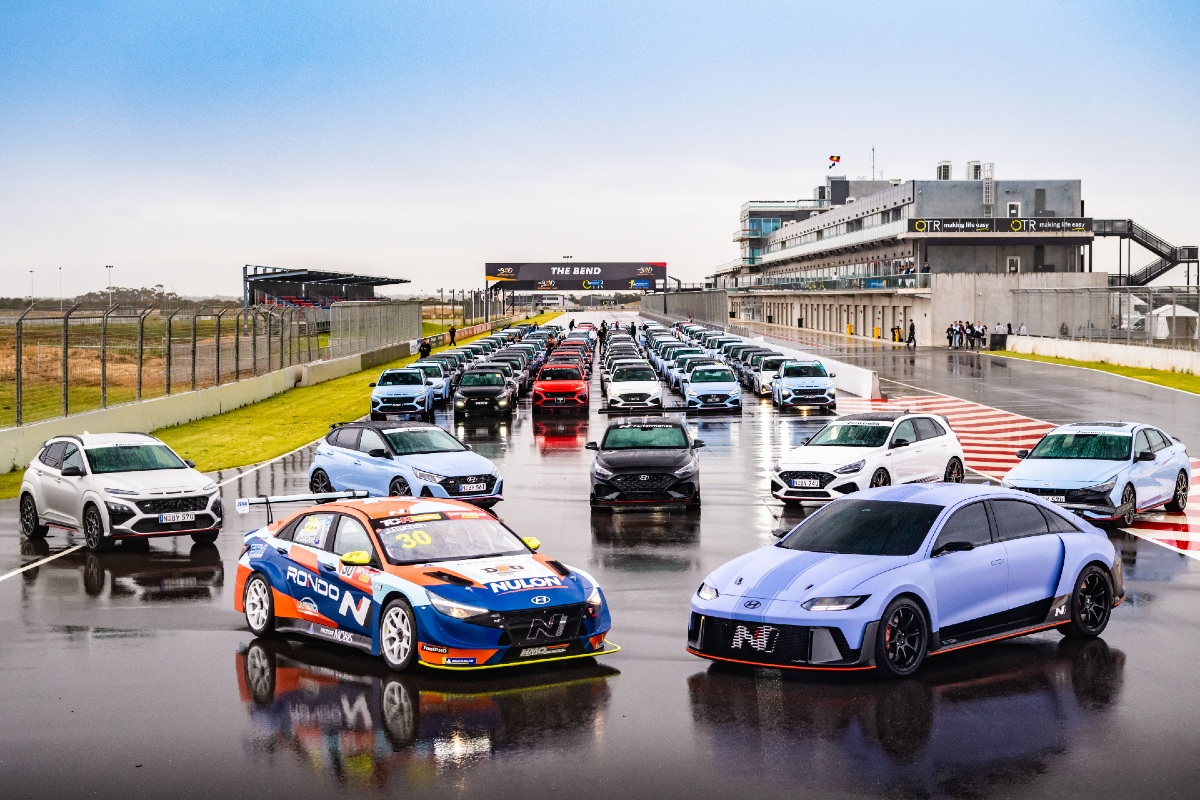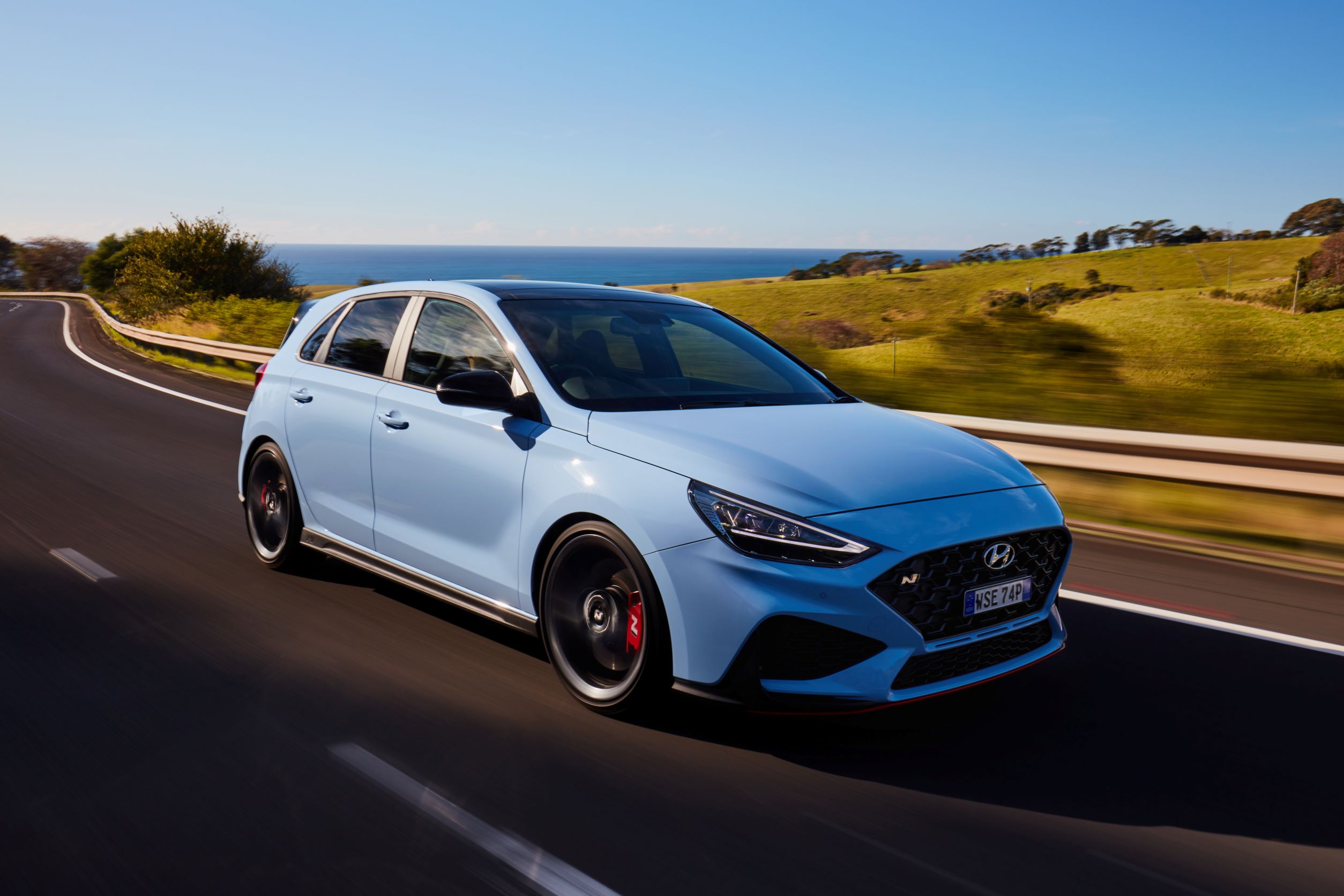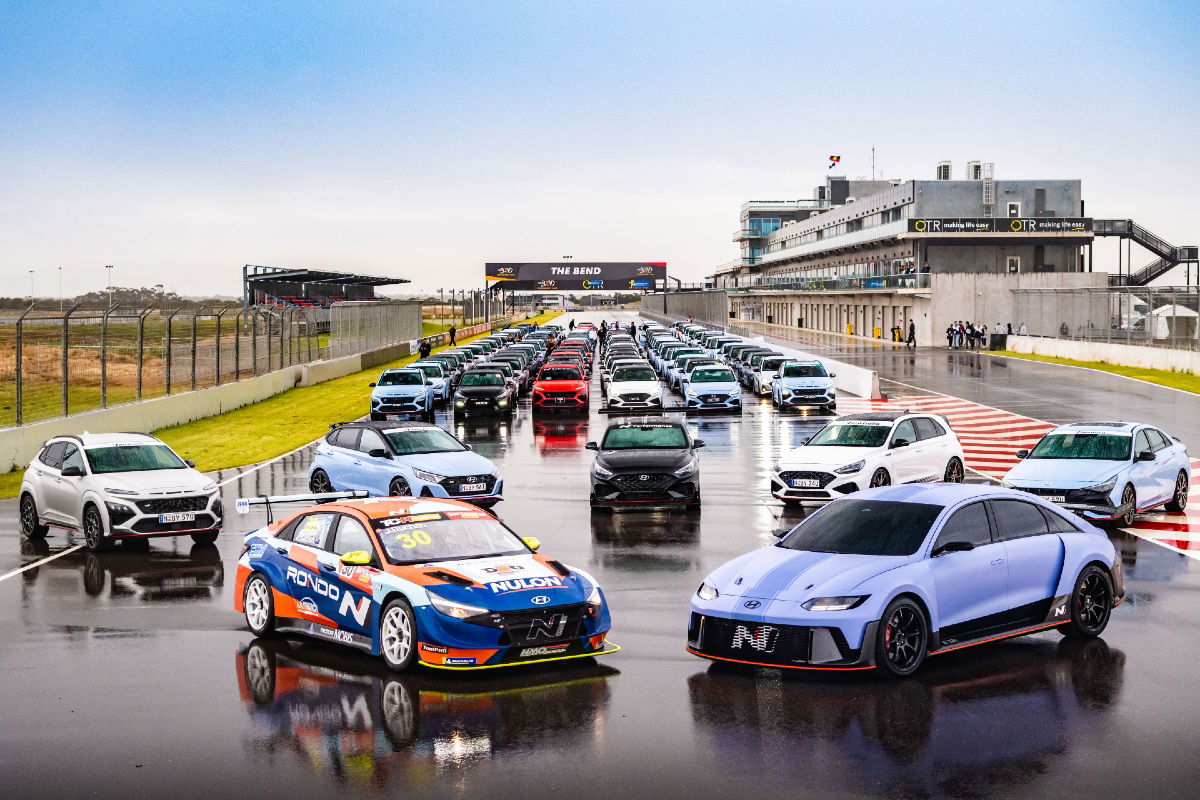
Hyundai has revealed the future of N Performance will be very different with a switch to electrification, but building ‘fun to drive’ cars remains its top priority.
The brand has confirmed it will introduce its new Ioniq 5 N in 2023, with plans for an Ioniq 6 N (previewed by the RN22e concept) to follow. Which means the clock is ticking on its current range of turbocharged petrol models, but the brand’s top executives have vowed to try and retain the likes of the i20 N and i30 N for as long as possible.
Speaking at the recent N Festival at The Bend Motorsport Park, Till Wartenberg, vice president N brand and motorsport for Hyundai, said strict incoming European emissions regulations mean there won’t be anymore new petrol-engined models but the current range (i20 N, i30 N, i30 Sedan N and Kona N) will stay for as long as possible.
READ MORE: Why we’re living with an Hyundai i30 Sedan N
“Honestly, completely new ones? I don’t think so,” Wartenberg. “We are discussing to be as long as possible with combustion engines but the regulations, for example Euro7, wherever that applies it makes it impossible to go many more years with combustion engines.
“So we’re thinking B- and C-segment [i20 and i30] we can prolong as long as we can, it always depends on the volume and the customer requirements and if they have the demand for that time period. But we see that it is possible, but it has to be somewhat profitable. So we focus most of our energy at the moment on the transition to electrification.”
The good news for Australian N fans is that it has typically taken longer for European emissions standards to come into effect here. Coupled with our relatively slow uptake on electric vehicles, Wartenberg sees a future for the petrol-powered N models in Australia.
“Regulations are regional,” he said. “N is not available in all parts of the world, in Australia the regulations are different than in Europe. So if you talk about this part of the world, combustion engines might survive much longer than in Europe, for example.”

The other challenge for Hyundai’s hot hatch is the decline of the hatchback market, as more buyers shift to compact SUVs. While Hyundai hasn’t made an official announcement the i30 hatch is unlikely to be replaced when the current model finishes up, meaning the end of the line for the first N model.
According to Wartenberg the most likely long-term survivor is the i30 Sedan N, because the four-door sedan (which sells as the Elantra in overseas markets) is still relatively popular in South Korea and the USA.
ROAD TEST: 2021 Hyundai i30 N review
Even when all the combustion cars go, Hyundai N will continue to offer affordable cars according to Albert Biermann, the man responsible for establishing the N models and current ‘technical advisor’ to the Hyundai board. Biermann is confident that Hyundai will have small, affordable electric models to replace the i20 N and i30 N – and sit alongside the Ioniq 5 N and Ioniq 6 N – by the end of the decade.
“By 2030 there should be affordable solutions for a B-segment N car, a C-segment N car, for sure,” Biermann said.
Whatever form it takes, Wartenberg is confident that the Hyundai N brand will offer the same experience that has made it popular today.
“The future has a safe base,” he said “It’s not ending with fun-to-drive on a racetrack. This is, I believe, what our mission is and what we can imagine… I think it will be more affordable because of economies-of-scale, it will be more advanced technology.”













Discussion about this post